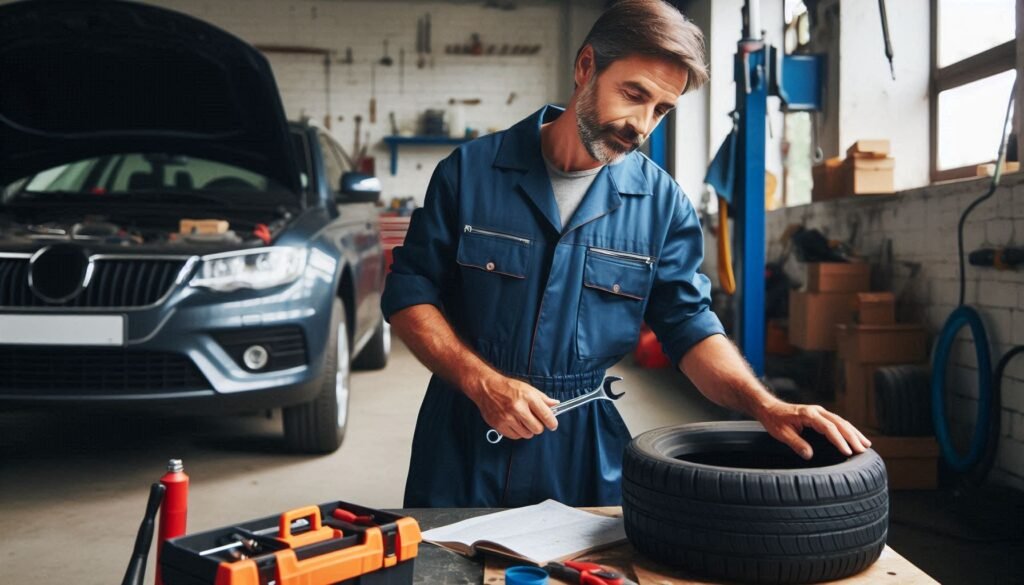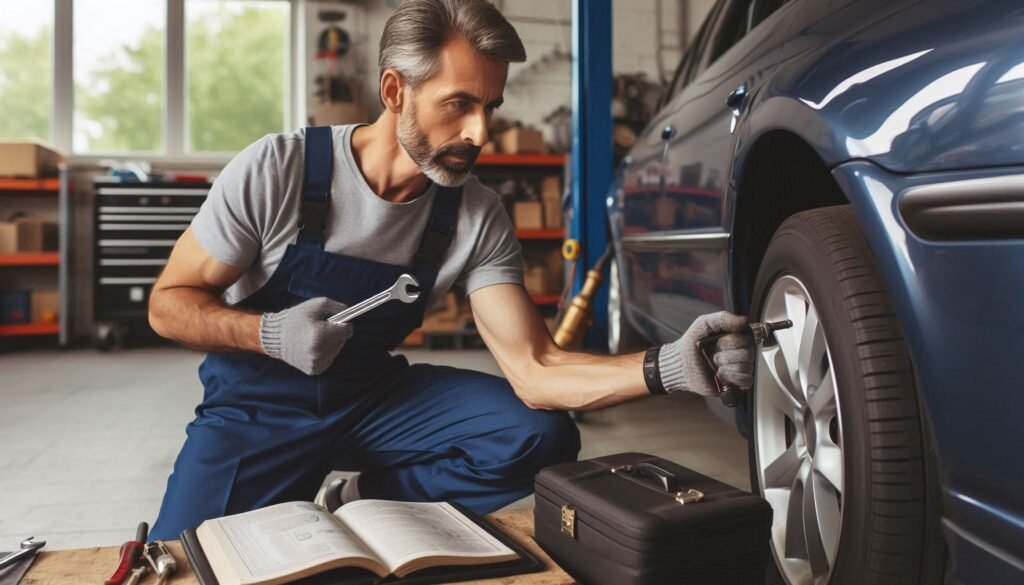How to Maintain Your Car for Optimal Performance: A Complete Guide
Owning a car is not just about getting from point A to point B—it’s about keeping your ride smooth, efficient, and road-trip ready at all times. But hey, cars don’t just maintain themselves (unfortunately). Whether you’re a car enthusiast or someone who views driving as a necessary evil, proper car maintenance is essential to keep your vehicle in top shape and avoid those dreaded “check engine” lights.
This guide will walk you through car maintenance tips that will keep your vehicle performing optimally. From under-the-hood basics to tire TLC, we’ve got everything covered. Ready to become the master of your car’s upkeep? Let’s hit the road!
Why Regular Car Maintenance Matters
Before we jump into the how-tos, let’s talk about why car maintenance is critical. Here are some hard-hitting facts to get you revved up:
- Prolongs the Lifespan: A well-maintained car can last over 200,000 miles, saving you the cost of buying a new one.
- Improves Fuel Efficiency: Proper maintenance can improve fuel efficiency by up to 10-15%, saving you money on those increasingly expensive fuel stops.
- Reduces Breakdowns: Regular checkups minimize the risk of sudden breakdowns, meaning no more awkward calls for a tow in the middle of nowhere.
- Maintains Safety: Neglecting maintenance can lead to unsafe driving conditions, such as worn brakes or bald tires, which directly impact your safety and that of others on the road.
Essential Car Maintenance Checklist :How to Maintain Your Car for Optimal Performance
Let’s dive into a simple, actionable car maintenance checklist to ensure you cover all your bases.
1. Oil and Filter Changes
One of the most essential maintenance tasks is changing your engine oil and filter. The oil lubricates all the moving parts of your engine, ensuring they don’t grind together and cause damage.
| Maintenance Task | Recommended Interval |
|---|---|
| Oil Change | Every 5,000 to 7,500 miles (check manual) |
| Oil Filter Change | With every oil change |
Pro Tip: If you drive under severe conditions (extreme heat, heavy loads, stop-and-go traffic), change your oil more frequently.
2. Tire Pressure and Rotation
Tires are the unsung heroes of car performance. Under-inflated tires reduce fuel efficiency, while over-inflated tires wear unevenly, compromising safety.
- Tire Pressure: Check monthly or before long trips.
- Tire Rotation: Every 6,000-8,000 miles to ensure even wear.
| Tire Maintenance | Recommended Interval |
|---|---|
| Tire Pressure Check | Monthly or before long trips |
| Tire Rotation | Every 6,000-8,000 miles |
Fact: Properly inflated tires can improve fuel economy by up to 3.3%.
3. Brake Inspection
Your brakes are crucial for safety, so regular inspection is non-negotiable. Listen for squeaky sounds or vibrations when braking—these are signs you need a checkup.
- Brake Pads: Inspect every 12,000 miles or if you notice decreased responsiveness.
- Brake Fluid: Change every 2 years or 30,000 miles.
| Brake Maintenance | Recommended Interval |
|---|---|
| Brake Pads Inspection | Every 12,000 miles |
| Brake Fluid Replacement | Every 2 years or 30,000 miles |
4. Battery Check
Ever had your car refuse to start just when you’re running late for an important meeting? Don’t let a weak battery ruin your day.
- Battery Charge: Test the battery at least twice a year.
- Battery Replacement: Every 3-5 years depending on use.
| Battery Maintenance | Recommended Interval |
|---|---|
| Battery Charge Test | Twice a year |
| Battery Replacement | Every 3-5 years |
Pro Tip: If your battery is over 3 years old, get it tested regularly to avoid unexpected failures.
5. Fluids Check
Fluids are the lifeblood of your car. Without them, it would be like trying to run a marathon without water.
- Transmission Fluid: Change every 30,000-60,000 miles.
- Coolant: Replace every 2-3 years.
- Power Steering Fluid: Check levels regularly and top off as needed.
| Fluid | Recommended Interval |
|---|---|
| Transmission Fluid Change | Every 30,000-60,000 miles |
| Coolant Replacement | Every 2-3 years |
| Power Steering Fluid Check | Regularly |
Fact: Proper fluid levels and quality are key to avoiding engine overheating and transmission failure. How to Maintain Your Car for Optimal Performance?
6. Air Filter Replacement
How to Maintain Your Car for Optimal Performance? A clean air filter allows your engine to breathe easier, improving performance and fuel economy.
- Cabin Air Filter: Replace every 15,000-30,000 miles.
- Engine Air Filter: Replace every 12,000-15,000 miles.
| Air Filter | Recommended Interval |
|---|---|
| Cabin Air Filter Replacement | Every 15,000-30,000 miles |
| Engine Air Filter Replacement | Every 12,000-15,000 miles |
Pro Tip: How to Maintain Your Car for Optimal Performance? Driving in dusty conditions? Replace filters more frequently.
7. Belts and Hoses Inspection
Belts and hoses are small components that play a big role in keeping your car’s engine running smoothly.
- Drive Belt: Replace every 60,000-100,000 miles.
- Hoses: Check for leaks or cracks at each service.
| Belts and Hoses | Recommended Interval |
|---|---|
| Drive Belt Replacement | Every 60,000-100,000 miles |
| Hoses Inspection | At every service |
Advanced Maintenance Tips for Optimal Performance : How to Maintain Your Car for Optimal Performance ?
Once you’ve mastered the basics, it’s time to up your car maintenance game with some advanced tips that can take your car’s performance to the next level. How to Maintain Your Car for Optimal Performance?
1. Wheel Alignment and Balancing
Do you feel your car pulling to one side? It could be an alignment issue. How to Maintain Your Car for Optimal Performance? Misaligned wheels not only cause uneven tire wear but also reduce fuel efficiency.
- Wheel Alignment: Every 2-3 years, or whenever you hit a big pothole.
- Wheel Balancing: Every 6,000 miles or during tire rotation.
| Alignment and Balancing | Recommended Interval |
|---|---|
| Wheel Alignment | Every 2-3 years |
| Wheel Balancing | Every 6,000 miles |
2. Fuel System Cleaning
A clean fuel system ensures optimal combustion and engine efficiency. How to Maintain Your Car for Optimal Performance? Over time, deposits can build up and reduce performance.
- Fuel Injector Cleaning: Every 30,000 miles or as needed.
- Fuel Filter Replacement: Every 2 years or 24,000 miles.
| Fuel System | Recommended Interval |
|---|---|
| Fuel Injector Cleaning | Every 30,000 miles |
| Fuel Filter Replacement | Every 24,000 miles |
3. Spark Plug Replacement
Faulty spark plugs can lead to reduced fuel efficiency, engine misfires, and sluggish acceleration.
- Spark Plug Replacement: Every 30,000-50,000 miles for standard plugs, and up to 100,000 miles for platinum or iridium plugs.
| Spark Plugs | Recommended Interval |
|---|---|
| Spark Plug Replacement | Every 30,000-50,000 miles |
Common Car Maintenance Myths Busted : How to Maintain Your Car for Optimal Performance ?
Myths about car maintenance can lead you astray. Let’s clear up a few common ones:
- Myth 1: Premium fuel improves performance for all cars.
Fact: If your car doesn’t require premium fuel, using it won’t improve performance or mileage. - Myth 2: You need to change your oil every 3,000 miles.
Fact: Modern engines can go 5,000-7,500 miles or even longer between oil changes, depending on the oil type. - Myth 3: You should always warm up your car before driving.
Fact: Warming up your car is unnecessary unless you’re in extremely cold conditions.
FAQs on Car Maintenance : How to Maintain Your Car for Optimal Performance
Q1: How often should I service my car?
A: Most experts recommend servicing your car every 6 months or 10,000 miles, whichever comes first. However, always follow the specific schedule in your car’s owner manual. How to Maintain Your Car for Optimal Performance?
Q2: What happens if I ignore regular maintenance?
A: Ignoring maintenance can lead to reduced fuel efficiency, more frequent breakdowns, and costly repairs. It can also compromise your safety on the road.
Q3: How do I know when my brakes need replacing?
A: Watch for signs like squeaking or grinding noises, a spongy brake pedal, or a vibration when braking. You can also have them inspected regularly to avoid surprises.
Q4: Is synthetic oil better for my car?
A: Synthetic oil offers better performance, especially in extreme temperatures, and lasts longer. However, it’s also more expensive. Check your car’s manual for recommendations.
Final Thoughts : How to Maintain Your Car for Optimal Performance ?
How to Maintain Your Car for Optimal Performance ? Maintaining your car for optimal performance doesn’t have to be overwhelming. With this guide, you’re now equipped with the knowledge to keep your car running smoothly and efficiently. Regular checks, timely services, and knowing what to look for will save you money, prevent breakdowns, and extend your car’s lifespan. So, whether you’re a weekend road tripper or a daily commuter, remember: A well-maintained car is a happy car!
Now, get out there and give your ride the TLC it deserves!
Most Fuel Efficient Cars of 2024 in India




[…] How to Maintain Your Car for Optimal Performance: A 100% Complete Guide […]
[…] How to Maintain Your Car for Optimal Performance: A 100% Complete Guide […]